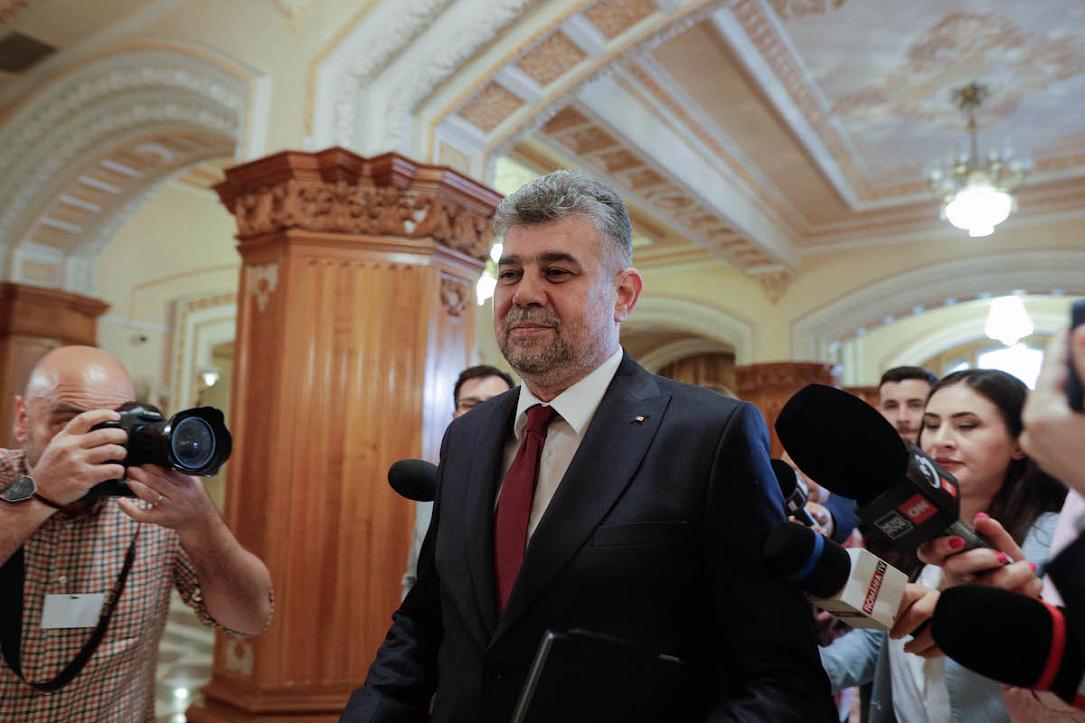Romania's incoming SocDem Govt. promises major economic reform over next 16 months

Upon his designation as prime minister by President Klaus Iohannis, Social Democrat leader Marcel Ciolacu announced for the next 16 months an episode of economic reforms along his party's "economic patriotism" ideology.
The new stage would follow the "stability" episode provided by the Liberals (PNL) since 2021 when the two parties formed an unexpected ruling coalition under the political sponsorship of President Iohannis, Ciolacu explained.
The plan is simple but unrealistic, given the latest budget execution data. Social Democrats plan to inject into the economy over EUR 110 bln over 2023-2024 – or some 17% of GDP this year and in 2024 – by public investments and "stimuli" for households and companies, with the aim of boosting local production/consumption and kill two rabbits with one shot: achieve robust economic growth (supposed to partly finance the plan and result in higher wages as well) and bring the inflation down (since the goods are produced locally, PSD argues).
The strategy is planned to bring beautiful results: robust economic growth of 4.2% this year and 5.4% in 2024 and sound fiscal consolidation. The budget deficit is seen at 4.4% this year and just under 3% of GDP in 2024. Consequently, public indebtedness should not be a problem: 46% of GDP at the end of 2024, from 47.2% at the end of 2022.
The Social Democrats count on financing needs of only 10% of GDP this year and 9.6% of GDP in 2024 – less than in 2022 or 2021.
But the EUR 110 bln financial injection should somehow be financed, and this is the debatable, possibly weak point but definitely the insufficiently detailed section of the Social Democrats' plan. Besides fiscal optimisation and better tax collection, the Social Democrats are expected to take tougher steps, such as cutting loopholes in the taxation system and introducing new taxes.
For now, PSD outlined only mild options, out of which three are worth being noted:
- The deductibility of the expenses strictly related to the income-generating economic activity, according to practices in developed European countries – which will increase the corporate tax base;
- The transposition of the provisions of the Initiative at the global level regarding the avoidance of the erosion of the tax base and the transfer of profits, which will substantially reduce tax evasion;
- The development and consolidation of the department that verifies transfer prices in order to substantially reduce this tax evasion practice.
Financing resources in 2023 and 2024
- The state budget - public investments of RON 239 bln (EUR 48 bln) in 2023 and 2024 (investments financed from national funds and from European funds and PNRR).
- Accelerating the collection of arrears recoverable (RON 11.5 bln/EUR 2.3 bln, i.e. 33% of the amount of arrears remaining to be recovered on September 30, 2022) and reducing tax evasion with RON 7 bln (EUR 1.4 bln).
- European funds worth RON 10 bln (EUR 2 bln) from the amounts already allocated through the Modernisation Fund
- Public-private partnerships for minimum 5 major investment objectives. EUR 3 bln can be mobilised from the private pension funds in Romania for feasible PPP projects.
- Financing from Development Banks.
- FDI inflows of EUR 24 bln in 2023 and 2024
iulian@romania-insider.com
(Photo source: Inquam Photos / George Călin)













